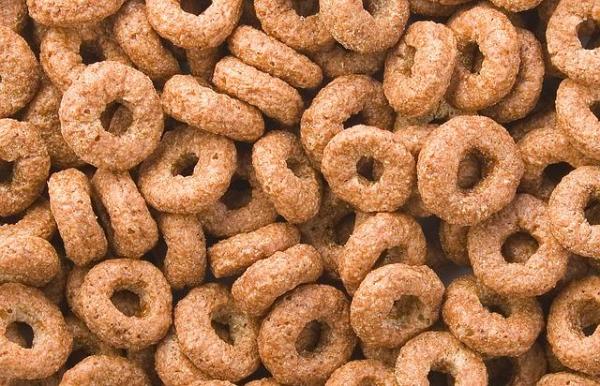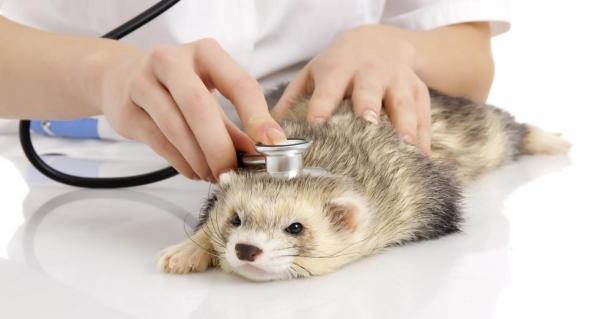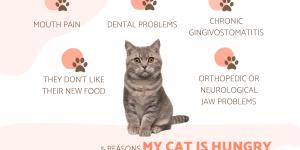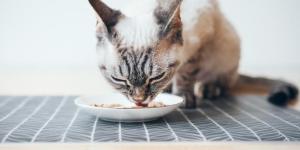My Ferret won't Eat Dry Food - Solutions & Recommendations


When we talk about pets we always link this concept to dogs and cats, which we consider our animal friends par excellence, however, the landscape of companion animals has changed enormously today, so much so that the ferret is no longer a hunting mammal and has become an affectionate pet.
Obviously, their organism, behavior and needs are very different from those of a dog or cat, so you need specific care and when it comes to veterinary check-ups it is also important to go to a clinic specializing in exotic mammals.
This animal's healthy diet intervenes directly in their state of health and welfare, so in this article we show you the solutions and recommendations to use when a ferret won't eat dry food, in order to avoid any complications.
A ferret's diet
This animal has specific nutritional requirements, so first of all, we'll take a look at what a ferret's diet should include:
- It must contain a greater amount of animal protein than vegetable protein, making up between 30 and 38% of their diet.
- The content of their food must be between 18% and 20% fat content.
- Fiber is very important to prevent gastrointestinal complications, a daily intake of 4% is recommended.
- Ferret feed must also contain vitamin A, C, E and taurine
The food we must use to make sure we offer our ferret all the nutrients they need is the specific feed for ferrets and it is recommended to use a dry feed as it reduces the amount of tartar that accumulates in their teeth.

Discarding underlying conditions
Anorexia or lack of appetite may in itself constitute a symptom that indicates a disease and if our ferret does not want to eat dry feed, this may be due to one of the following conditions:
- Infectious diseases affecting the digestive tract
- Bacterial or viral infections
- Heart failure
- Allergies
- Metabolic problems
- Neurological disorders
- Ingestion of toxic substances
Because lack of appetite may be indicating serious disturbances, it is important to see a veterinarian first, because if the veterinarian suspects an underlying disease, he or she will perform a complete physical examination, dental examination and will rely on tests such as ultrasounds or urine analysis to check for any abnormalities.

Is my ferret not eating due to illness?
As we will see later, the most common causes for which a ferret does not want to dry eat food are not serious, but it is not always so, if your ferret does not eat feed and you also observe the presence of any of the following symptoms, they may be sick:
- Vomiting
- Diarrhea
- Hair loss
- Difficulty breathing
- Disorientation
- Uncoordinated movements
- Stiffness in the extremities
Some of these symptoms added to a lack of appetite may be indicating that something serious is happening, with anorexia being the cause of an underlying disease, go to the vet urgently.

Most common causes for a ferret not eating dry food
In the absence of any underlying serious pathology, ferrets tend to reject their dry food for the following reasons:
- They find it difficult to adapt to its taste
- Difficulty in adapting to its texture (in the case of dry feed)
- They are used to a diet based on meats and eggs
- Have developed gingivitis due to tartar accumulation and cannot eat comfortably
- The feed provided to them is not of good quality or is a feed intended for other types of animals
Solving these causes and getting our ferret to eat properly is not complex, but it does require a great deal of patience on the part of the owners.

Solutions and recommendations so that your ferret eats dry food
If your ferret does not eat, it is necessary to use one (and sometimes several) of the following measures, until their dietary intake is progressively normalized:
- Provide toys that they can bite, this will reduce tartar buildup in their teeth by preventing and treating gingivitis.
- Don't give them cat food, they need a specific ferret feed.
- As a basic measure,it is recommended to change their type of food, ferrets have an exquisite palate and do not get used to any taste.
- In order to adapt them to the texture of dry food, it can be given as porridge, allowing it to be previously soaked in water for about 10-15 minutes.
- If the problem with our ferret is that they are used to a meat-based diet, at the beginning we should add a handful of meat to the feed and make a damp mixture, progressively, we will reduce the amount of meat used.
- If porridge with meat and feed does not work, at the beginning you should give them a blended bowl of just meat should be used, to which the feed is gradually added.
As mentioned above, these stockings are usually very effective as long as the owner has enough consistency and patience.

If you want to read similar articles to My Ferret won't Eat Dry Food - Solutions & Recommendations, we recommend you visit our Diet problems category.










